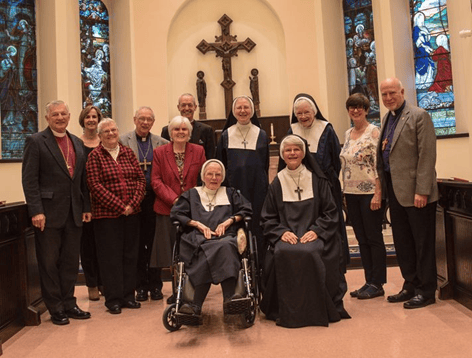ROME — While there are many aspects of the papacy and the Vatican that have been turned on their head in the Pope Francis era, at least one thing appears basically the same: The Vatican’s China policy, which is still premised on patient constructive engagement rather than confrontation.
That’s arguably the only way to go, but it also suggests a dose of caution about over-interpreting any given twist to the saga, such as Chinese state television’s decision over the weekend to give favorable mention to a papal note of sympathy for the recent loss of life due to an explosion at a chemical plant.
While such positive mentions of the pope are indeed rare, there’s little immediately to suggest that it marks a fundamental break with the “one step forward, one step back” dynamic that’s characterized China’s approach to its growing Christian presence for some time.
(The Pew Forum estimated the number of Christians in China in 2010 at 67 million, representing strong growth since the last census that included religious affiliation in 1949, when the Christian total was less than a million. Purdue University sociology professor Fenggang Yang believes China is on track to overtake the United States as home to the largest Christian population in the world somewhere around the year 2030.)
In tandem with a Chinese decision earlier this month to permit the ordination of a new Catholic bishop in Henan province with the Vatican’s blessing, some observers have been tempted to see the favorable mention of the pontiff as a signal that the wheels may be grinding toward the long-awaited resumption of official diplomatic relations between Rome and Beijing.
Francis has certainly taken an interest in reaching out, last September dispatching a handwritten note via an Argentine friend who’s not part of the Vatican diplomatic corps inviting Chinese President Xi Jinping to visit him in Rome.
Yet there are also compelling reasons for caution.
For one thing, TV coverage of the pope’s words about the tragedy at Tianjin may have much more to do with short-term political cover rather than any sweeping diplomatic calculations.
At the moment, Jinping is scrambling to defuse withering internal criticism over whether the explosion has exposed serious deficiencies in workplace safety and regulatory oversight, acknowledging that authorities need to pursue “safe growth” policies that don’t put public safety at risk.
In that context, respectful messages of condolences from world leaders that seem to frame the event as an act of God may well strike Chinese officials as a way to try to dampen public outrage.
In a similar vein, the Aug. 4 ordination of the new Catholic bishop in Henan, 44-year-old Joseph Zhang Yinlin, the first in China in three years, also responded to short-term political considerations.
It came against the backdrop of mounting tensions in Zhejiang province, an area of robust Protestant growth, where officials had ordered the removal of crosses from the steeples of state-approved churches. That move triggered wide protests among both Protestants and Catholics, who understandably saw it as a way to rein in Christianity’s influence.
While China permitted Zhang to be ordained in the open, another Chinese Catholic prelate, Thaddeus Ma Daqin, remains under what amounts to house arrest at a Shanghai seminary more than three years after he publicly announced his withdrawal from a government oversight body during his own ordination ceremony.
As of this writing, at least two other Catholic bishops and six priests remain in Chinese prisons, one since 1997. All are members of what’s often called China’s “underground” Catholic community, meaning Catholics who refuse to accept oversight from the state-sponsored Chinese Patriotic Catholic Association.
This past February, relatives of 94-year-old Bishop Cosmas Shi Enxiang, the Catholic leader of Yixian in northeastern China, were informed by authorities he was dead. It was the first news they’d had of Enxiang since he was arrested 14 years before, on Good Friday in 2001. Reportedly, he spent about half of his imprisonment in hard labor camps.
In many ways, Protestants in China often have it even worse. According to the NGO ChinaAid, more than 1,000 Protestants in the country are being detained for unauthorized religious activity and have been given prison sentences in excess of a year.
All this explains why long-time experts on religious freedom issues in China probably won’t leap to the conclusion that recent signs of a thaw are necessarily definitive.
In terms of the Vatican, its long-standing approach is to work toward reconciliation with Beijing, trying to make the point that one can be both a good Catholic and also a fully loyal Chinese citizen. In Rome’s view, this generally means avoiding public statements or gestures that seem provocative, and taking every opportunity to express goodwill.
That caution may reflect either good judgment or a failure of nerve, depending on one’s point of view. In any event it’s part of a long-term strategy, and in the meantime, there likely will be several more mini-cycles of boom or bust in Sino-Vatican relations.
The trick is not to get too carried away in one direction or the other when those cycles erupt, with this weekend’s rare flash of positive papal coverage on Chinese TV likely a good example of the point.

















